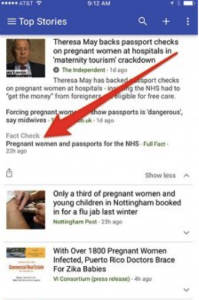Welcome to our weekly round-up of all the latest news and research from around the world of search marketing and beyond.
This week we have brand new Google search data for the holidays, an update to Analytics 360, the introduction of a ‘mobile first’ search index and a lovely stock photo of a dog with a newspaper.
Google announces Surveys as part of its Analytics 360 suite
Announced in its recent blog-post, Google will be adding a market research product to its enterprise version of Analytics.
This means that marketers will be able to carry out market research in combination with performance and analytics data, all in one place.
According to Google “market research has been slow to adapt” to the current and future shift in digital behaviour. Traditional research meant “hiring a research firm, waiting three months or more, and then getting data that’s siloed and may not be sharable.”
However with Surveys 360, you will have instant access to a panel of 10 million online respondents and 1 million surveys fielded weekly, offering enterprise marketers access to a “brand new layer of data and insights into what consumers are doing and thinking.”
Survey 360 is available for purchase today, but currently only in the US and Canada.
Google Search Index set to go ‘mobile-first’ within months
Speaking at Pubcon last week, Google’s Webmaster Trends Analyst Gary Illyes stated that Google will create a separate mobile index within the next few months.
Furthermore, this mobile index will become the primary Google index. The newly separated desktop index will not be kept as up-to-date as the mobile one.
Details of the split haven’t been fully addressed as of yet, but it has been confirmed by Illyes that it will happen “within months.”
Snapchat to abandon ‘revshare’ for publishers, will now pay for content
As reported by Al Roberts in ClickZ this week, Snapchat has been looking to negotiate different terms with publishers. This means an end to Snapchat revenue share.
Instead, Snapchat will pay publishers a guaranteed amount of cash up-front for a license to the content they produce. Snapchat will then have the exclusive ability to sell ads against the content and keep all the revenue the content generates.
As Recode’s Peter Kafka notes, this model is like that of television networks, which license programming and keep the revenue from ad sales. According to Kafka, some of Snapchat’s publishing partners are amenable to a licensing arrangement while others are more hesitant.
Google adds a ‘fact check’ feature
As reported by Clark Boyd in ClickZ this week, Google has added a new fact check feature within its News products, allowing users to separate fact from fiction on trending stories.
The tag will be shown within expanded story boxes, as in the example below:

Google has a two-step process for deciding which pages are worthy of the fact check label.
The first is the implementation of the ClaimReview schema. Only pages that claim to contain fact-check content within the article title will be assessed, with the ClaimReview schema then adding specificity to that claim by highlighting the content in question.
From here, sites must be able to prove that they have followed a rigorous fact check process, clearly citing their sources and ensuring that these are taken from reputable, trustworthy institutions.
AdWords reveals new holiday shopping data, reveals the rise of the ‘supershopper’
According to AdWords’ latest blog post, shoppers around the world are more informed and more efficient than ever before – “they’ve transformed into supershoppers seemingly overnight.”
Here’s the data behind the claim:
- Last year, more than 50% of holiday shoppers said they were open to purchasing from new retailers. Now, after searching on Google, 76% of mobile shoppers have changed their mind about which retailer or brand to purchase.

- 64% percent of smartphone shoppers turn to mobile search for ideas about what to buy before heading into store.
- 25% of mobile video viewers in the US have visited YouTube for help with a purchase decision while they were at a store or visiting a store’s website.
- Last holiday, mobile searches related to “best gift” grew 70% year over year while mobile searches related to cheap or inexpensive gifts grew about 35%.
- 76% of people who search for something nearby on their smartphone visit a related business within a day, and 28% of those searches result in a purchase.
- More than 40% of smartphone shoppers want retailers to automatically surface relevant information such as the location of the item in the store, a special deal or related products.
source https://searchenginewatch.com/2016/10/21/five-most-important-search-marketing-news-stories-of-the-week-8/
No comments:
Post a Comment